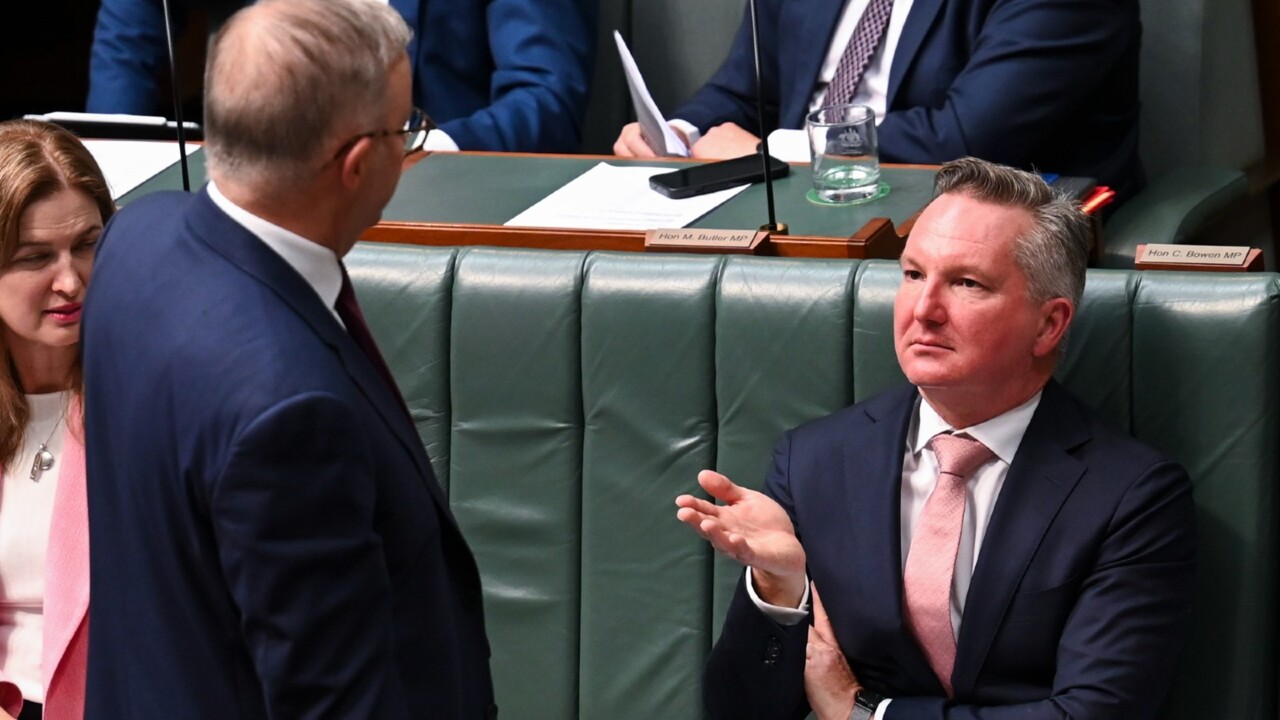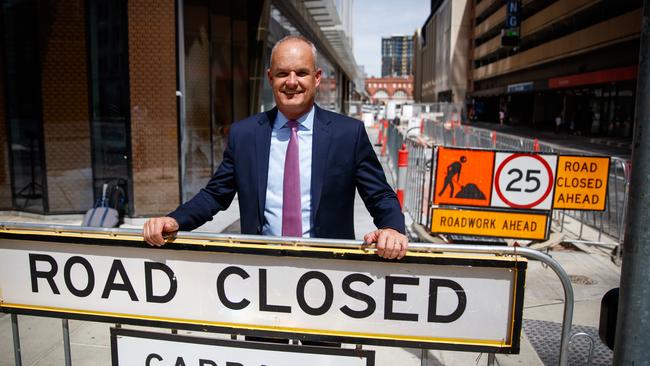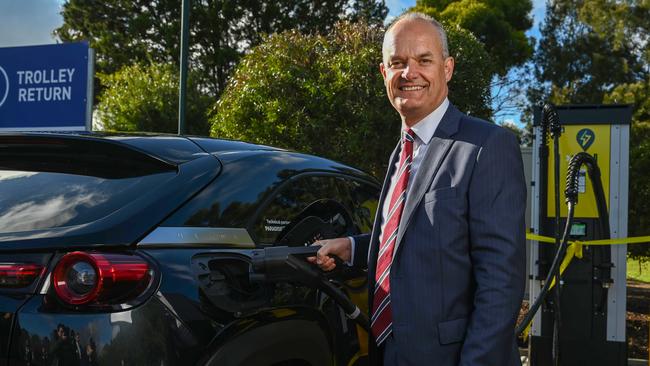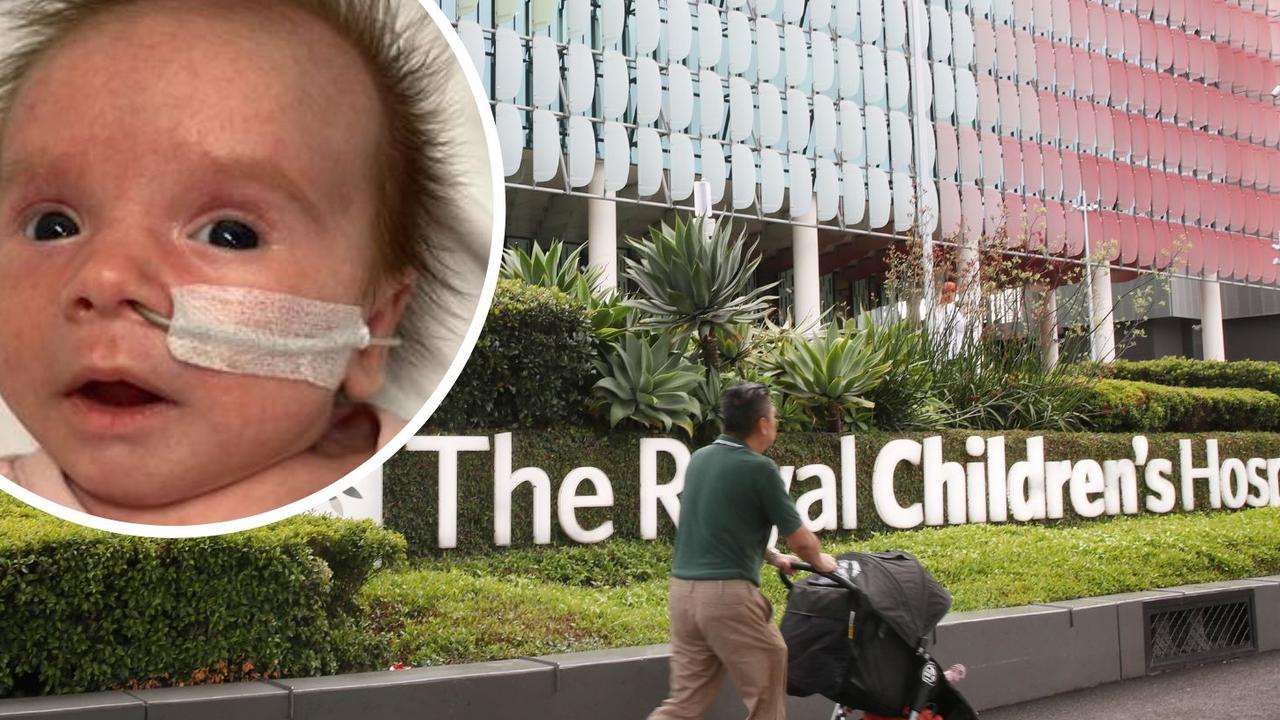Building Bigger, Better SA: Overhaul taxes so electric cars don’t get a free ride: RAA
An unstoppable surge in electric vehicle drivers escaping fuel excise payments is triggering top-level calls for fuel excise reforms.

SA News
Don't miss out on the headlines from SA News. Followed categories will be added to My News.
An unstoppable surge in electric vehicle drivers escaping fuel excise payments is triggering top-level calls for an overhaul of the $15bn in taxes paid by motorists to fund roads.
The RAA, the state’s peak motoring body, warns a $2bn road maintenance backlog will spiral out of control without urgent federal government action to generate revenue from EV drivers.
Premier Peter Malinauskas is backing the RAA, saying: “This is something the Commonwealth are clearly going to have to turn their mind to.”
RAA chief executive officer Nick Reade warns there will be an inevitable funding shortage as EV adoption continues and revenue declines from the 49.6 cent per litre tax paid by motorists on petrol and diesel.
Federal fuel efficiency standards designed to start next year force car makers to sell more zero or low-emission models, penalising them if average emissions from imported vehicles are higher than a target to be slashed through to the end of the decade.

Mr Reade said responsibility for replacing dwindling fuel excise had been thrust onto the federal government after a road user levy on electric vehicles imposed by Victoria was ruled unconstitutional by the High Court last October.
“The core issue we want to put on the table is that we think we need a complete overhaul of the tax system that underpins motoring in Australia, the system that pays for roads and infrastructure,” Mr Reade said.
“The move to EVs is happening, whether we like it or not – it’s happening and it’s going to happen. We have to get prepared for the inevitable shortage in revenue from fuel excise that funds the roads.
“It’s going to take time, so we’re calling it out now, because it’s complex and complicated. It needs a lot of deep thinking, it needs a lot of collaboration across industry and government, it needs a bipartisan approach.”
More than 4500 full battery electric vehicles were sold in South Australia during 2023, comprising 5.7 per cent of the 79,009 total vehicle sales. Electric cars accounted for almost 10 per cent of national sales in February.
CommBank data released on Thursday shows a 37 per cent increase in electric vehicle adoption in the past six months among its car loan customers.
Responding to the RAA’s call, Mr Malinauskas told The Advertiser a Liberal-introduced EV tax had been repealed in February last year because Labor opposed a state-based charge designed to replace the national fuel excise.
“The idea that we’d have a hotchpotch system across states, I don’t think is very productive or economic – you actually want a degree of consistency,” he said.
“This is a national revenue source, there should be a national solution to the revenue source rather than a sort of Victoria doing x, South Australia doing y and so forth.”

Mr Reade said the RAA wanted swift action to stem an inevitable worsening of the multi-billion dollar backlog in maintenance on thousands of kilometres of roads requiring urgent maintenance.
He said road user charges needed to be considered without hobbling incentives for motorists transitioning to EVs, such as the fringe benefits tax exemption on novated leases for EVs costing up to $89,332.
New Zealand is introducing a road user charge for light electric vehicles from April 1, which aims to ensure road users contribute to their upkeep.
Owners of battery electric vehicles, powered exclusively by charging, will pay $NZ76 per 1000km, while owners of plug-in hybrid vehicles, which use both petrol and electricity, will by $NZ53 per 1000km.
Norway, a world leader in electric vehicle adoption, has a weight-based motor vehicle tax – electric cars are significantly heavier than petrol or diesel counterparts.
Mr Reade said a critical part of any overhaul in Australia was that motorists were not double-taxed.
“This issue around how we fund the roads has to be dealt with and it has to be fair and equitable,” he said.
“It has to be sort of not create any sort of disincentive. It has to be either a road user charge or excise, but not both.
“ Obviously it has to be simple and easy to administer, with payment online.”
Originally published as Building Bigger, Better SA: Overhaul taxes so electric cars don’t get a free ride: RAA





